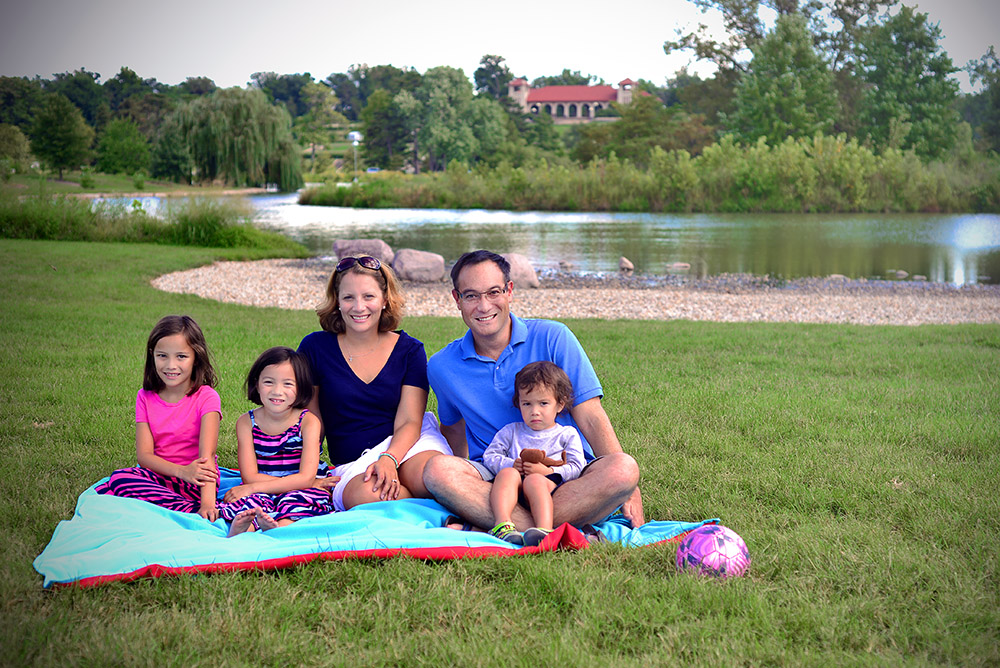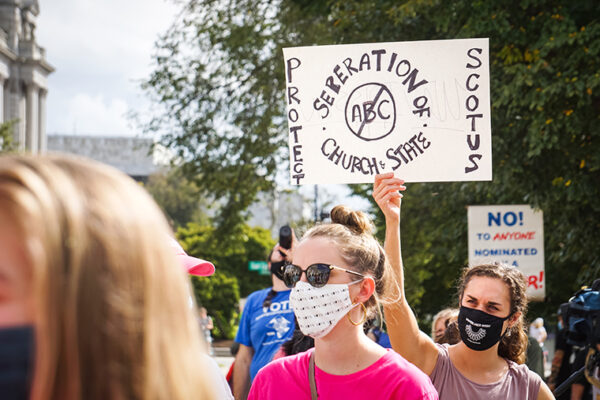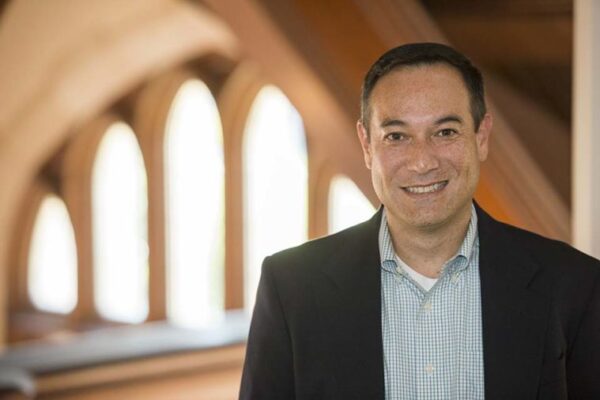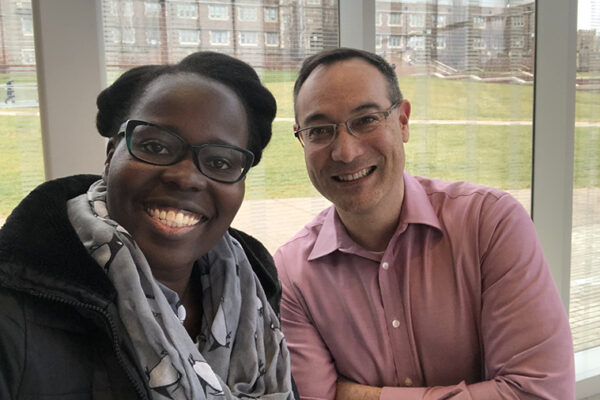Can’t we all just get along?
Even a cursory glance at today’s political headlines would suggest that the possibilities look bleak.
But is there another way?
John Inazu, associate professor of law in the School of Law and of political science in Arts & Sciences, thinks there is.
“Confident pluralism is a political solution to a practical problem,” Inazu said. “It’s a way of dealing with our deep and real differences through both constitutional law and civic commitments.”
Inazu, who is an expert on the First Amendment, as well as freedom of assembly and of religion, has just published a new book, “Confident Pluralism: Surviving and Thriving Through Deep Difference.”
The book argues that we can and must live together peaceably in spite of deep and sometimes irresolvable differences over politics, religion, sexuality and other important matters. We can do so in two important ways: by insisting on constitutional commitments that honor and protect difference; and by embodying tolerance, humility and patience in our speech, our collective action (protests, strikes and boycotts), and our relationships across difference.
“This project really grew out of my first book around the right of assembly,” Inazu said. “It led me into questions of pluralism and difference and the ways in which we are living in a society where everyone doesn’t agree about everything, and yet we are required to coexist and protect each other’s difference.”
“In order to make our society work, it’s going to take both attentiveness to law and to our own civic practices,” Inazu said. “We can’t individually change the law, but we can be aware of its deficiencies and how it needs to be changed.”
A few of those ways, Inazu suggested, are strengthening protections for private groups; reshaping the doctrine that governs spaces for protest and dissent; and coming to a better understanding of generally available public funding that does not consider ideology or belief.
“One example of public funding is the scheme of charitable tax exemptions in the United States,” he said. “The way it’s set up, charity doesn’t necessarily have to be for a shared notion of the common good. The idea of a system of charitable organizations enables the flourishing of lots of different visions of the good. Once the government sets it up that way, it should be hands-off about which visions are pursued.”
On civic responsibilities, Inazu thinks we can all take more responsibility for getting out of the “Twitter wars” and into conversations, being patient and listening to each other.
Election politics
“The current election cycle is making the need for positive engagement even more urgent,” Inazu said. “I think the overall rhetoric from all sides is both worsening and worrisome,” he said.
“Partly what motivates the movement to the political poles is a lot of discontent, but also an increased fissure about what our common enterprise is supposed to be,” Inazu said.
“Not that that’s an easy fix,” he acknowledged. “But it does require a lot more relationship across difference, and sooner rather than later. I worry that the increasing focus of all this playing out on social media in 140 characters means that we are not giving either side enough generosity or understanding, and we are reducing everything to sound bites, which is not going to help us understand each other any better.”

Teaching and research
Inazu has been at the university for five years and received tenure this spring. He earned a PhD in political science from the University of North Carolina and a JD from Duke University School of Law.
He teaches criminal law to first-year law students, as well as a law school class on law and religion and various seminars related to the First Amendment.
“I’m excited to teach a new undergraduate course in the fall with Mark Valeri (the Reverend Priscilla Wood Neaves Distinguished Professor of Religion and Politics) called ‘Religious Freedom in America,’” Inazu said.
This interdisciplinary course addresses the intersection of religion, liberty and law in American culture. It will introduce students to the major texts and historical issues concerning religious liberty, using legal history and case law, intellectual and social history, and political philosophy.
“I’m happy to be collaborating with such a great colleague, and the topic is obviously something I have a lot of interest in,” Inazu said. “It will also be an exciting opportunity to interact with undergraduate students.”
The university is blessed to have “some fantastic students who are engaged and push me to think more clearly and more deeply about the law and its meaning,” he said.
Other than “Confident Pluralism,” Inazu recently has been working at the intersection of the First Amendment and criminal law, trying to more effectively bridge those topics. His latest article, “Unlawful Assembly as Social Control,” challenges some of the laws that regulate public protests, including those that unfolded in nearby Ferguson. “I also have academic interest not only in religion, but also theology, so I’m trying to figure out how those different disciplines inform legal scholarship.”
He also has been working to get involved in public discussions, publishing op-ed pieces and blog posts on religious freedom, right of assembly and the need for civil discourse.
“I see increasingly the role of scholars like me to have some place for translating ideas in a way that’s coherent and understandable to the broader public,” Inazu said. “It feels like part of my role is to do that and help contribute to different debates.”


